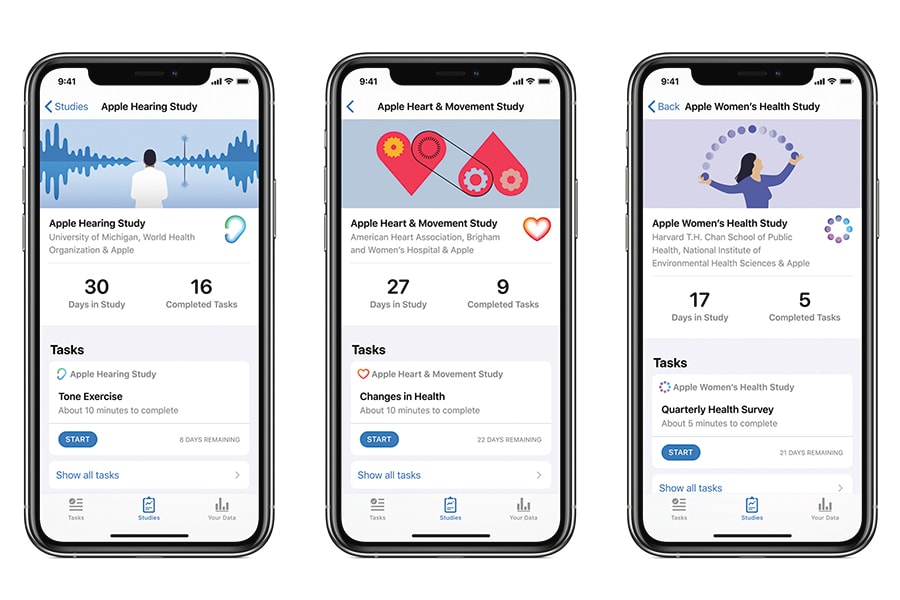
Apple's reach reshapes medical research
On Thursday, the Harvard School of Public Health announced an ambitious women's health study that aims to enroll 1 million women over a decade. This is the third large-scale study that Apple has partnered with, developing research tools using iPhones and apps
 An image provided by Apple of mobile phones with screens representing new medical studies. The Harvard School of Public Health has announced a new study that is just one of three new large research efforts that Apple is working on, and paying for, with leading academic research centers and health organizations — an example of how the Silicon Valley giant and its popular products are reshaping medical research
An image provided by Apple of mobile phones with screens representing new medical studies. The Harvard School of Public Health has announced a new study that is just one of three new large research efforts that Apple is working on, and paying for, with leading academic research centers and health organizations — an example of how the Silicon Valley giant and its popular products are reshaping medical researchImage: Apple via The New York Times
In 1976, the Harvard School of Public Health and two other major medical institutions started a study on nurses that has become one of the largest and longest research efforts ever conducted on women’s health. They have so far enrolled more than 275,000 participants.
On Thursday, the Harvard school announced an even more ambitious women’s health study, one that aims to enroll 1 million women over a decade.
The new ingredients allowing the huge scale: Apple’s iPhones, apps and money.
Harvard’s new study is just one of three new large research efforts that Apple is working on with leading academic research centers and health organizations. Together, the studies, which Apple is paying for, show how the Silicon Valley giant and its popular products are reshaping medical research.
To enroll in clinical trials, patients have often had to travel to medical centers to be briefed by researchers and fill out the study paperwork in person. Many studies also follow patients only intermittently, in periodic surveys and visits to hospitals.
But Apple tools are enabling large-scale virtual studies that can follow people as they go about their daily lives. The company has developed a research app for iPhones — which participants can download from its app store — that is helping researchers quickly and easily recruit hundreds of thousands of study volunteers.
©2019 New York Times News Service




